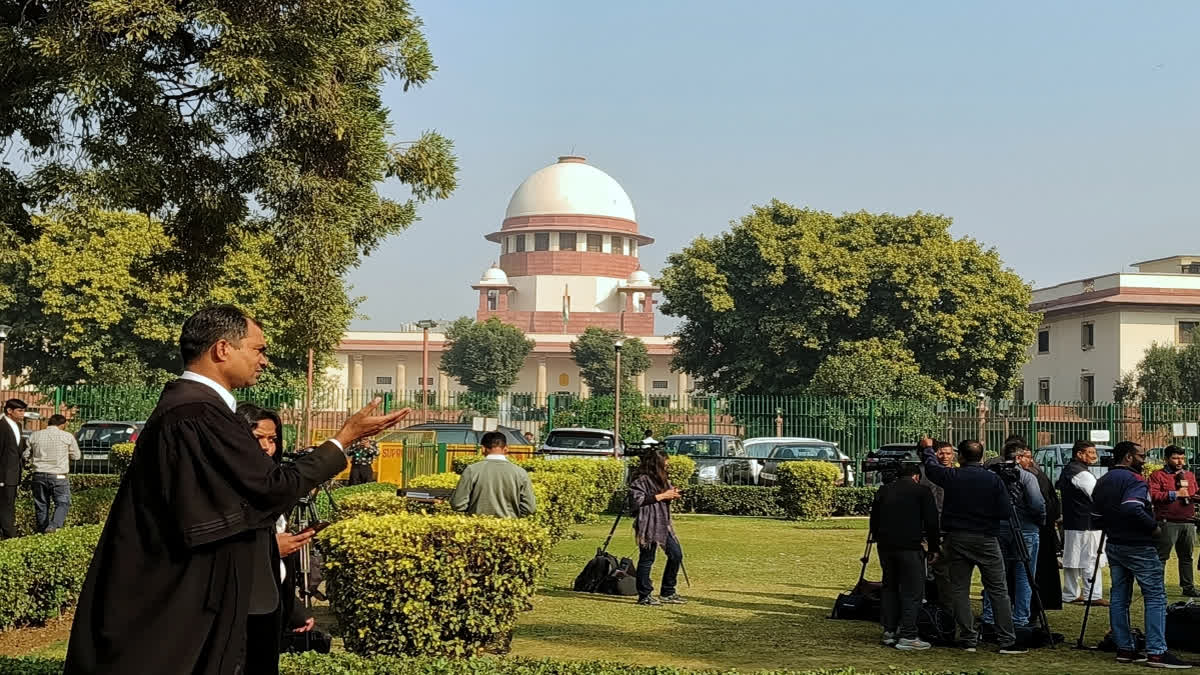New Delhi:A group of lawyers, including senior advocate Harish Salve and Bar Council of India chairperson Manan Kumar Mishra, have written to the Chief Justice of India, alleging that a "vested interest group" is trying to pressure the judiciary and defame courts "on the basis of frivolous logic and stale political agendas".
"Their pressure tactics are most obvious in political cases, particularly those involving political figures accused of corruption. These tactics are damaging to our courts and threaten our democratic fabric," their letter, dated March 26, addressed to CJI D Y Chandrachud said.
The letter, shared by official sources, targeted a section of lawyers without naming them and alleged that they defend politicians by the day and then try to influence judges through the media at night.
This interest group creates false narratives of a supposed better past and golden period of courts, contrasting it with the happenings in the present, the letter said, claiming that their comments are aimed at influencing courts and embarrassing them for political gains.
The group of lawyers, who are behind the letter titled "Judiciary Under Threat-Safeguarding Judiciary from Political and Professional Pressure", number around 600 and also include Adish Aggarwala, Chetan Mittal, Pinky Anand, Hitesh Jain, Ujjwala Pawar, Uday Holla and Swarupama Chaturvedi, the official sources said.
Though the lawyers behind the letter have mentioned no specific cases, the development comes at a time when courts are dealing with several high-profile criminal cases of corruption involving opposition leaders.
Opposition parties have accused the central government of targeting their leaders as part of its political vendetta, a charge refuted by the ruling BJP. These parties, whose ranks include some noted lawyers, have joined hands against the recent arrest of Delhi Chief Minister and AAP national convener Arvind Kejriwal in the Delhi excise policy-linked money laundering case.
Targeting critics, these lawyers have accused them of suggesting that courts in the past were easier to influence. This shakes the public's trust in courts, they said.
